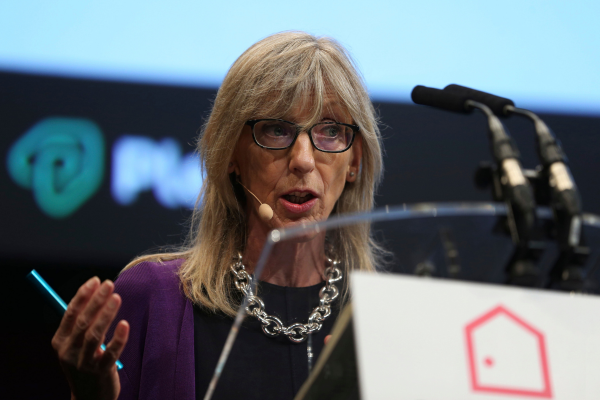Stock-owning councils setting up housing boards amid new regulatory landscape
Stock-owning councils are setting up housing boards and groups to oversee the new, more stringent consumer-focused regime in England.
Kirklees, Lancaster and Kingston councils are among those setting up boards to help navigate the new regulatory landscape and scrutinise social landlords’ activities and decisions.
The new consumer-focused regime, officially in place since April, was brought in to ensure the voice of residents is heard and to rebalance the relationship between tenant and landlord.
The government pledged to introduce more stringent regulation after the Grenfell Tower fire in 2017, which killed 72 people. Concerns residents raised with their landlord about the safety of the block fell on deaf ears before the tragedy.
Social landlords now have to comply with new consumer standards and will be subject to inspections by the Regulator of Social Housing (RSH).
Crucially, landlords need to demonstrate that tenants have been involved at every level of decision-making.
David Shepherd, executive director of place at Kirklees Council, explained that the decision to create a housing board came after the local authority brought its ALMO back under direct control, with the aim of not losing the “single focus” on housing.
He said: “As we brought Kirklees Neighbourhood Housing back in-house in April 2021, we were conscious of the degree of change and turbulence in the social housing sector – consumer regulation, building safety, ombudsman, decarbonisation, as well as the internal change created by the transfer of engagements.
“So the cabinet were keen to ensure that the single focus achieved by having an ALMO was not lost.”
At this point, the council established its homes and neighbourhoods improvement board, but also recognised that there was room to improve.
Mr Shepherd added: “We knew the improvement board format would work from our experience with children’s services, where a similar approach helped us address our shared concerns with Ofsted and steer a path towards improvement of the services we’re responsible for.
“So, bringing the services back in-house has already ensured closer working and knowledge-sharing to directly benefit our tenants.”
The primary purpose of the board is to oversee the delivery of the housing management and maintenance services delivered by the council and to ensure the service is being run in line with legal and regulatory requirements.
It works closely with the cabinet member for housing and “acts as a critical friend, advisor and does the ‘heavy lifting’ on behalf of the cabinet”, making recommendations on the key decisions the cabinet must take.
The board is made up of an independent and paid chair, three independent experts with a mix of skills (property, neighbourhood services and procurement) drawn from the sector, two tenants, and representation from across the political groups.
The chair attends the cabinet member’s fortnightly briefing to “ensure alignment between the board and political priorities”. The portfolio holder sits as an observer at board meetings, but not as a board member, to avoid conflicts of interest.
The board also looks at whether risks are being identified and managed well and mitigated, performance reporting is timely and appropriate to inform decision-making, and whether there are mechanisms in place to engage with tenants and act on their feedback.
Mr Shepherd said the board was “here to stay”, brought “strong and robust governance” and provided assurance to the cabinet by supporting and challenging officers responsible for leading and managing the service.
“It has a single focus, independent professional expertise drawn from executive-level professionals from the housing sector, cross-party political oversight to develop consensus, risk and performance management, and oversight of the transformation journey, which has been fundamental to ensure the board’s effectiveness.
“Most importantly, our tenants are represented on the board and are fully supported, so their voice is heard and acted upon,” he said.
Lancaster’s council housing advisory group was set up in September 2023 to act as a “‘critical friend’ to the council” in relation to its housing service.
The council said its purpose was to provide independent scrutiny and assurance in relation to its delivery, by those who live in its council homes and who serve residents.
It also acts as a “sounding board” for the Lancaster’s cabinet member with responsibility for housing, by allowing members of the group to provide opinions via discussions on specific topics relating to council housing.
Members of the group include the cabinet member for housing, two other cabinet members, staff from the service, tenants (including those from the Tenant Voice group), as well as representatives from the third sector, including North Lancashire Citizens Advice and the health authority.
Caroline Jackson, cabinet member with responsibility for housing and homelessness at Lancaster City Council, told Inside Housing that collaborating with residents and partners was “crucial in ensuring our council housing service meets their needs”.
She said: “This partnership helps us monitor and scrutinise performance and drive continuous improvement.
“This is a clear requirement in terms of the new consumer standards from the Regulator of Social Housing.
“Alongside our other engagement work, we are keen to ensure that our residents have a voice and provide continuous scrutiny and challenge at the highest level, ensuring our services cater to the diverse needs of all our customers and communities.
“Feedback from this group also aids council housing officers in developing strategies, policies and service delivery.”
Kingston Council in London set up a housing services group as part of its response to the regulatory changes.
Members include the portfolio holder, a deputy, service leads and tenants.
The group is at the top of the council’s resident engagement framework, with more targeted groups below it, such as repairs, housing for older people and estate services.
It has an overview of budget goals and housing improvement works and aims to help deliver “improved services to residents and be compliant with the appropriate housing regulatory and legal frameworks”.
This week, the RSH published the first judgements from its inspection programme.
Sign up for our Council Focus newsletter
Already have an account? Click here to manage your newsletters











